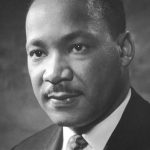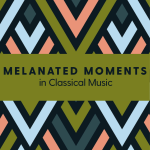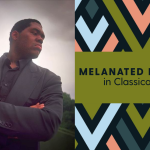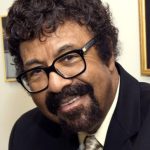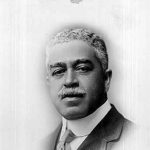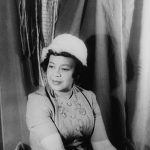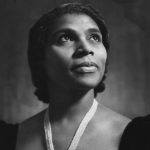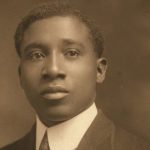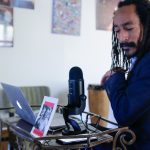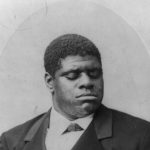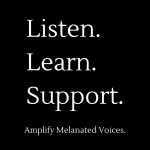Melanated Moments, Bonus Episode 1: Cultural Through Lines
In this bonus episode of the show, Angela and Joshua invite a special and renowned guest, Dr. Bill Banfield, to share insight into his amazing body of work. This episode focuses on how art can help us process tragedies and draw through lines between the past’s struggles and the present’s hardships. Through this process, we learn how artists can help foster peace and hope on an individual and social level.
Featured Music:
“Peace Symphony,” by William Banfield
Music Plays (00:05): [MMCM Theme] Joshua Thompson (00:15): Hello everyone. I’m Joshua Thompson… Angela Brown (00:18): and I’m Angela Brown. Joshua Thompson (00:19): And this is Melanated Moments in Classical Music– Angela Brown (00:24): The bonus edition! Joshua Thompson (00:26): Angela, it is so good to be with you again, albeit remotely, but let’s just be honest though. All right. 2020 has been an unprecedented year, to say the very least. Angela Brown (00:42): Chile, you ain’t said nothing, but a word. So much has happened in the world of classical music and in the world at large, since we debuted this podcast in– just– March, 2020, right? Joshua Thompson (00:56): So, like for starters, there’s the elephant in the room– Angela Brown (01:00): Wait a minute, wait a minute. You are talking about the pandemic and not these pandemic pounds on my behind, right? Joshua Thompson (01:07): Well, yes, because you know– The Corona Virus is still a thing.– Angela Brown (01:15): Cause I’m workin’ on it–[laughter] Baby, I’m workin’! Yes. Joshua Thompson (01:15): There is summer that literally boiled over into the streets, around the globe as we continue to wrestle with achieving true racial equality. And Angela, both of these things came together and just– it just really transformed artists, our community, and global communities in a way that I’m not sure we’ve ever seen before. Angela Brown (01:41): I know I’ve never seen anything like this in my life. We’ll dig deeper into all those things in a minute– trust me. But 2020 has also been an unprecedented year in some inspiring ways, as well. Joshua Thompson (01:57): How so? Angela Brown (01:58): Well do you know, we as artists– we creatives, we never let a crisis go to waste. So– Joshua Thompson (02:06): This is very true. Angela Brown (02:07): But seriously, this time has birthed some incredible new music, enriched some incredible communities, and moved the needle ever forward. So there’s some good that we will– and need to– highlight. Joshua Thompson (02:22): Yes, I agree. And you know, Angela, how much I love a positive reframe! And speaking of positive things, uh– girl, we kind of did our thing in season one, huh? Angela Brown (02:37): [Sings] Whoop, whoop!– Yes, baby! We are: The Best Black Music Podcast of 2020! Joshua Thompson (02:48): Come on, girl, hit them high notes! Cause I can’t– we are so excited, and we really just want to thank The Black Podcasting Awards for that honor, cause we didn’t see a comin’! Angela Brown (02:57): No we didn’t. And we are getting a Season Two, chile, ha! Joshua Thompson (03:02): Come on! Angela Brown (03:03): But you know, we can’t start Season Two as if 2020 didn’t happen honey– Joshua Thompson (03:07): Right? Angela Brown (03:08): So, we’ve decided to bring you all these bonus episodes to cover the year that was 2020. Joshua Thompson (03:15): And cover them we will! And we’re going to have fun doing it too. So Angela, I understand that we have both found a special guests for these bonus episodes who, quite remarkably and single- handedly, embodies all of these topics, whether we’re talking about the COVID-19 pandemic, racial equity and equality– or the lack thereof– and creative resilience, Angela Brown (03:44): Honey, and I don’t know how this man had– is able to do all of that, but we have definitely found someone that speaks to all of those things. And I am so excited to introduce to some and present to others: Dr. Bill Banfield. Let me just tell you a little bit about him. Joshua Thompson (04:08): Please let the people know–let them know this– this is the man that we all need to know. I’ll try to curb my enthusiasm, but girl, I’m just–I’m so excited today. Angela Brown (04:17): Well, just wait a minute. Wait a minute. Lemme read a little bit about it first– daggone, boy! Okay. Bill Banfield has produced a body of productive music, arts, scholarship activities, books, compositions, and readings. Banfield was appointed, in 2019, as a research associate with the Smithsonian Center for Folk Life and Cultural Heritage. Joshua Thompson (04:43): Wow. Angela Brown (04:44): Now his work focuses on what he identifies as Cultural Through Lines. You know, delineating the ways in which contemporary artistry and new works harken back and hold on to critical cultural linkages to understand. Having served– not once, but twice–as a Pulitzer Prize judge in American music, that’s 2010 and 2016, Banfield is an award- winning composer whose symphonies, operas, chamber works have been performed and recorded by major symphonies across the country. Some of his recordings– I mean he has got 12 symphonies, seven opera– Joshua Thompson (05:30): Wow! Angela Brown (05:30): –12 chile! Twelve symphonies, seven operas, nine concerti, chamber, jazz and popular forms. Now this alone makes Bill Banfield one of the most performed and recorded composers of his generation. He been busy. Joshua Thompson (05:50): I would agree. Angela Brown (05:50): He been busy! His works as a composer and performing, recording jazz artist are carried on Atlantic, Telarc Collins Classics– that’s in London– Centaur, Albany/Visionary Recordings, and In Nova records. His music has been performed and/or recorded by– and this is just a few, honey, cause the list is too long– Joshua Thompson (06:13): It is longer than I am tall. So hit me with it! Angela Brown (06:18): Okay! George Duke, Patrice Rushen ,Don Byron, Leon Bates, Christian Scott, Najee, Ron Carter, Delfeayo Marsalis, Regina Carter, Nnenna Freelon, and Nelson Rangel. And I do mean that’s just to name a few. Joshua Thompson (06:41): You had me at Christian Scott and you had me at Nnenna Freelon. Listen– Angela Brown (06:44): Okay! I am just so excited to introduce and welcome Dr. William ‘Bill’ Banfield. Hey, Dr. B! Bill Banfield (06:58): Hello to both of you and everyone. Joshua Thompson (07:01): It is absolutely exciting to have you here, and there’s so much that you can and will talk to us about. And so Angela and I have to work to, uh, to really make sure that we hit all the highlights and the under points. Um, and so we just kind of want to bring you on here– because again, like we said earlier, you are the physical and musical representation of the year that has been 2020, um, and honestly beyond. So we’re looking forward to your insights, and to your observations of Melanated Moments in Classical Music. So welcome! Bill Banfield (07:38): Well, that’s a high order to fill, there. But, listen, let’s have a blast talking about all the wonderful things you all do, the things that are forthcoming, and, the kinds of ways in which we can have a ball looking at these great themes that you outline– just a very big honor to be here. Joshua Thompson (07:58): So Dr. Bill, just, just kinda give us a little bit more, um, background. Cause there’s a lot that we can talk about, but just briefly– just tell us how your entire career got started. Where does all of this start from? It doesn’t come from nothing, right? Bill Banfield (08:18): Well, I think, uh– you know, my parents I’m from Detroit–Yeah. Angela Brown (08:21): Yes! That’s what I wanted to ask you, but go head. That– you said Detroit, then I’m like “Ooo! Music, music, music!” Go head, baby– Bill Banfield (08:32): Yeah! But it also represents a kind of an urbanized city of progression. Folks moved to Detroit. The industries were there. They were able to build an economy and a culture that represented the best that–that America’s always about, which is forward motion, industry, and innovation. That happened in music as well, with all the music that happened with Motown. So I’m from Detroit, but I think– to get straight to the course of some of this– a lot of my work started with Angela Brown. Unison (09:01): [laughter] Joshua Thompson (09:06): You’ve been holding out, you been holdin out! Bill Banfield (09:07): –I know, I know– I skipped over a couple years though. You know, cause we started doing this when we were seven years old. Right. Angela Brown (09:14): Exactly, baby, and I still look good! Bill Banfield (09:19): Yeah, you do! Yea, when you think about it, those early years in my first times as a young professor. Angela Brown was my vocal assistant at Indiana University- Bloomington, and that’s what we first met. And uh– so, actually all the stuff we’re talking about actually starts with my interaction with Angela. And we both– kind of reaching out to do our work in the world. And I mean, the story moves on from there, but in terms filling in– You know, I went away to school, uh, from Detroit to the East, to New England Conservatory, did my undergraduate there, in Boston. And then I did a masters in theology and philosophy and art– Angela Brown (09:54): Yeah, now, you can’t just gloss over that one because that was something that I found in the research that blew my mind! I was like– Did you wanna be a minister–a whoopin’ kind? Bill Banfield (10:06): Ah–Yeah, I went to divinity school! Angela Brown (10:08): Wow. Dr. B, I didn’t know that! Joshua Thompson (10:11): Let’s be honest– still doing a very elevated form of ministry even as we speak. Angela Brown (10:15): Hey! Bill Banfield (10:17): Yeah, you know, it’s interesting. During that time I studied, I went to Africa– to West Africa– to Daqar and the principal musician role– artist philosopher, uh, visionary, ritual person, spiritual person is, in West Africa ,called the griot– teaches the music. He or she embodies what the cultural values are. So when I was working on my masters, I wanted to look at the relationship of those ideals and the idea of lifting people forward with music and art. And that was my master’s thesis. And so that’s what I studied in West Africa. When I came back to BU, Um, I started on this thesis around these areas. There’s a lot to talk about there, but that’s where, uh, where the work and thought begin to be threaded together about the role of the artist in society. Angela Brown (11:13): Yes, because you wrote a book about the griot that the students had to, to, to learn– Didn’t you teach a class or course? Bill Banfield (11:21): Yep! Angela Brown (11:21): Yeah, at IU–And I remember that’s when that book came out, but I had no idea that you were thinking about becoming a clergy. I knew–I knew you was deep as the ocean now, but you were also crazy and fun. So, you know– we were kids! And I was, I was definitely following your wisdom in everything that we did at The Arts Institute down at Indiana University. But I mean– yeah, that theological thing just, just threw me. Bill Banfield (11:56): Oh yeah. So– and so here, it is that I go from, uh, BU uh, with a master’s in theological studies and I go to University of Michigan and do my doctorate in composition. So what happened there is: that there was also the minor area in ethnomusicology, which is just–you know, this same area. I mean, it’s the history of how music affects people in specific cultural kinds of concepts. What is it– dealing with, um, you know, music from China, music from Detroit, music from the South. Ethnomusicology is a study of how those musics are generated by those different cultural groups to make a larger discussion about how music moves the society. So those things kind of all just mixed together. And then I finished my doctorate, and my first job, Josh, was at Indiana University as a professor of music and Afro-American studies. So it came together right there at Indiana University. Angela Brown (12:53): I had no idea that was your first job, first of all. And, uh–but yeah, you know– now it makes sense! Joshua Thompson (13:03): I absolutely love this Dr. Bill. You, um, with your work, that centers on cultural through lines, we’ve taken the last few minutes and have had a somewhat heady and academic conversation about, you know, what the focus is. Um, if you all remember from, an episode in Season One, we are all collective Blerds. We are Black nerds. This is what we do! Um, and I have found the– Poobah of Blerds in Dr. Bell! Um, but as a way to kind of make it a little bit– accessible here, to put our finger on the button: cultural throughlines, it’s connectivity. You said a couple of times how music connects people and cultures, and we were going through– I think you provided for us– it’s your Symphony No. 6, and I feel like this is such a beautiful example of what you just talked about. Right, Angela, you know what I’m sayin’? Angela Brown (14:00): Yes. Yes. When I listened to that this morning, I immediately– because you know, 2020 has taken us all through, um, some, some types of spiritual changes or whatever, and I’ve been meditating a little more– and I turned on The Peace Symphony and I was like, “Okay, this has all kinds of Tibetan singing bowls and Indian flute music”. I was like, “I can use this as part of my meditation”! It is so beautiful, and I can’t wait for the audience– just to hear what I’m talking about. It’s soothing yet, it keeps you engaged. And it bubbles a little bit under the surface and into your soul. Joshua Thompson (14:48): So, I tell you what, let’s give our listeners an opportunity to take the heady and put it in their ears. Let’s just give them an experience of that meditative, but connective, um, representation found in this little excerpt of, uh, Dr. Bill Banfield’s Peace Symphony. Music Plays (15:43): [Bill Banfield, “The Peace Symphony”] Angela Brown(19:42): Whew! Joshua Thompson (19:45): Angela and Dr. Bill, I have to tell you–Um, so actually in March, I had my first chance to actually meet Dr. Bill’s acquaintance, because I was studying with him with a fellowship and– a research fellowship I was doing– and the day before I got on my plane, when we could still like travel freely, right. That was a thing. Uh, this was the piece that I listened to the night before. I was unbelievably nervous. It’s that feeling of meeting great expectation, uh, meeting heroes, meeting people who are doing things that you want to do. And there was something that was wildly comforting and illuminating in vision and purpose when I heard this Dr. Bill. Bill Banfield (20:27): Wow. Joshua Thompson (20:29): The title is apropos, as in: Peace Symphony. It just– Angela Brown (20:32): Definitely. Joshua Thompson (20:32): Yeah, you became a human. I mean, you were– always are, right– but you were– you were artists, you were prolific, but this piece was, um, musical humanity. And I have loved it ever since. So thank you for this. Bill Banfield (20:46): Oh, thank you! Angela Brown (20:48): What was your inspiration behind this piece, Doc? Because now that I know that you’re a spiritual guru, all I– Unison (20:54): [Laughter] Angela Brown (20:57): All I could see while I was listening to this– the wind was blowing. It’s a beautiful day here in Indianapolis, and the sun is shining on the backside of the leaves as the wind is blowing them– Bill Banfield (21:09): Oh wow… Angela Brown (21:09): I could just feel the warmth and the breeze and– it’s cold as I-don’t-know-what here– But what were you thinking about when this came to you? Bill Banfield (21:19): Well, that’s– you know, you all are such good musicians. Uh, it’s so interesting for your audience, that you all are setting the pace and helping us all to interpret what it is we’re hearing when we hear that piece. I enjoyed listening to it with you all together. Um, you know, one of the things that I say, Angela and Josh, is: that music is tones organized to tell human stories. That’s one of the things that I talk about a lot. And, um, so the idea of using this music– like you say, Josh, just go to the real deals, get away from all these intellectual ideas. That’s how people listen to music. They think– they hear music, they see art, they see dance, and they’re reminded of their human journey. So when you listen to a music like that, you know, you hear that the musicians that are playing the music are also trying to evoke a certain idea that the composer had in mind. So in terms of what I had in mind– and you, you bring this up so wonderfully also, um, in your overview of bios, uh, the timeline– I mean, the first, and you helped me to understand this as the– uh, Symphony Six was done in 1995. This recording– it’s 2015, so already 20 years there, and they both are linked. If you noticed, that opening with that: da-da, da-da, da-da– Angela Brown (22:40): Yes! Bill Banfield (22:40): I know, I know that’s you– you heard that and you, ask her, you mentioned that. See, that’s part of, kind of a through-line idea– like a cow bell– a rhythmic thing, and then you pour all these beautiful or challenging ideas or, you know, or melodies or rhythms on top of that, but that through line– da-da, da-da, da-da, –that just keeps you human! So there’s the human walk, the human heartbeat, and then you’re able to– but the, the short end of this, on a more practical end than that, is that my mentor from Detroit, Kenny Burrell– the great jazz guitarist, Kenny Burrell, who’s also The Chair of Jazz studies at UCLA– commissioned that piece from me. And he said he wanted me to write a symphony that dealt with– just the idea of wanting peace in the world. And so that, that’s a little bit of the backdrop of that piece. I– so thank you all for picking that piece. Joshua Thompson (23:35): Dr. Bell, it’s, like I said, it’s gorgeous. And, I think, a great place to end today’s episode: on this idea of peace and beauty as we as a nation, and the world, take time to recover from this chaotic, yet historic, summer and get ready for all the work that is still to come. So thanks again to Dr. Bill Banfield. I’m Joshua Thompson… Angela Brown (23:59): And I’m Angela Brown. Joshua Thompson (24:00): And this has been Melanated Moments in Classical Music. Joshua Thompson (24:09): Hello, everyone! I’m Joshua Thompson… Angela Brown (24:11): And I’m Angela Brown. Joshua Thompson (24:13): And this is Melanated Moments in Classical Music– Angela Brown (24:16): Thank you Edition! Joshua Thompson (24:19): As hosts of Melanated Moments in Classical Music, we wanted to take a moment to thank: The Central Indiana Community Foundation, — Angela Brown (24:27): The Board of Directors of Indianapolis Foundation, and– Joshua Thompson (24:30): The Evans Woollen Fund for Fine Arts, for supporting Season Two of our podcast. Angela Brown (24:37): We can’t wait to bring you season two, as part of Classical Music Indy’s Amplify Our Voices Initiative. Joshua Thompson (24:46): And, as always, we look forward to shining a bright spotlight on musical works composed by, for, and about Black people. We truly, and sincerely thank you for your generous support.
[/su_tab] [su_tab title=”Related Blog Posts” disabled=”no” anchor=”” url=”” target=”blank” class=””]LOCAL CLASSICAL – MELANATED MOMENTS SEASON SIX
As we continue celebrating Black Music Month, this week’s playlist will feature music and artists discussed during the latest season of Melanated Moments in Classical Music. All of season six was recently released and featured vibrant discussions about artists such as Scott Joplin, Hazel Scott, Joseph Bologne, and Kenneth Overton, among others.
LOCAL CLASSICAL – BLACK MUSIC MONTH
In this week’s playlist, we celebrate Black Music Month which takes place in June. It was created by President Jimmy Carter in 1979 to honor and celebrate Black artists’ contributions to music. We’ll be honoring the late Herman Whitfield III, an Indianapolis native who was a gifted pianist and composer. We’ll also hear performances of artists who have been featured in season four of Classical Music Indy’s podcast, Melanated Moments in Classical Music.
LOCAL CLASSICAL – MELANATED MOMENTS
In this week’s Black History Month playlist, we bring you recordings by composers, performers, and artists who have been highlighted in our podcast, Melanated Moments in Classical Music. Melanated Moments is the ward-winning podcast from Classical Music Indy that shines a spotlight on musical works composed by, for, and about Black people.
LOCAL CLASSICAL – HOST OKARA IMANI
Hey, Starshine! This is Okara Imani, Media Production Fellow for Classical Music Indy, and your guide to The “I” in Classical Music. I’m here to highlight the cultural and social intersections of the classical art form, beyond the Classical Period and beyond the constructs of Euro-centric high society origins.
Ric’key Pageot: Inspiring a Moment to Learn, Acknowledge, and Respect
Ric’key Pageot: Inspiring a Mo …
Ignatius Sancho: Composing the Hypocrisy of Colonialism & Convention
Ignatius Sancho: Composing the …
NEW CLASSICAL – DR. BILL BANFIELD
This week we bring you the music of Dr. Bill Banfield. Dr. Banfield is an award-winning composer whose symphonies, operas, chamber works have been performed and recorded by major symphonies across the country. Few have a wider, performed professional composing output, that has had public concert performances, reviews, radio, recordings of some 12 symphonies, 7 opera, 9 concerti, chamber, jazz, and popular forms. This alone making Dr. Banfield one of the most performed, recorded composers of his generation. In 2010 and 2016, Dr. Banfield served as a Pulitzer Prize judge in American music.
#AmplifyMelanatedVoices
Classical Music Indy stands with our Black community. We are here to listen, learn, and lend our support. We believe that classical music is powerful; that it evokes a range of human emotions and creative expression.
Angela Brown Brings her Unbridled Zeal to a New Podcast.
Angela Brown brings her unbrid …


